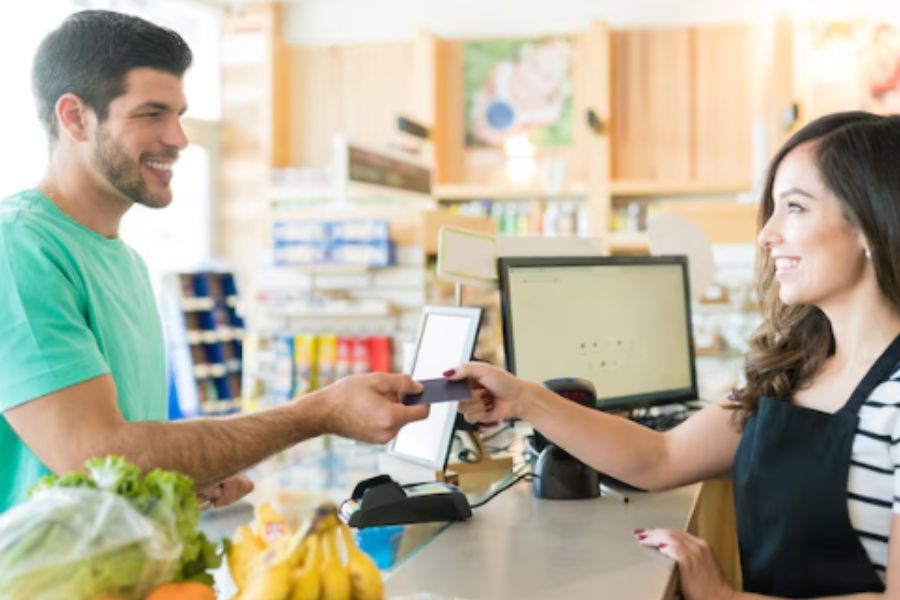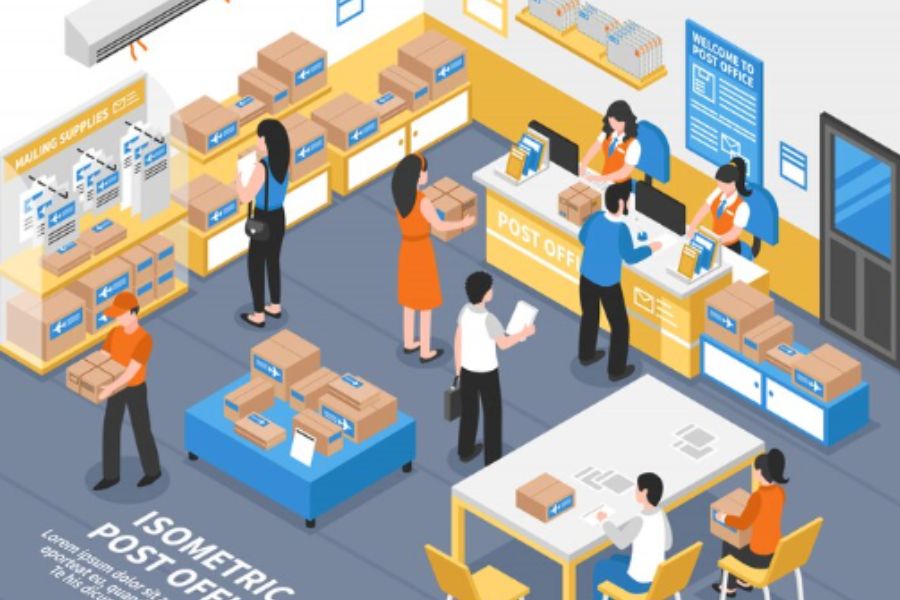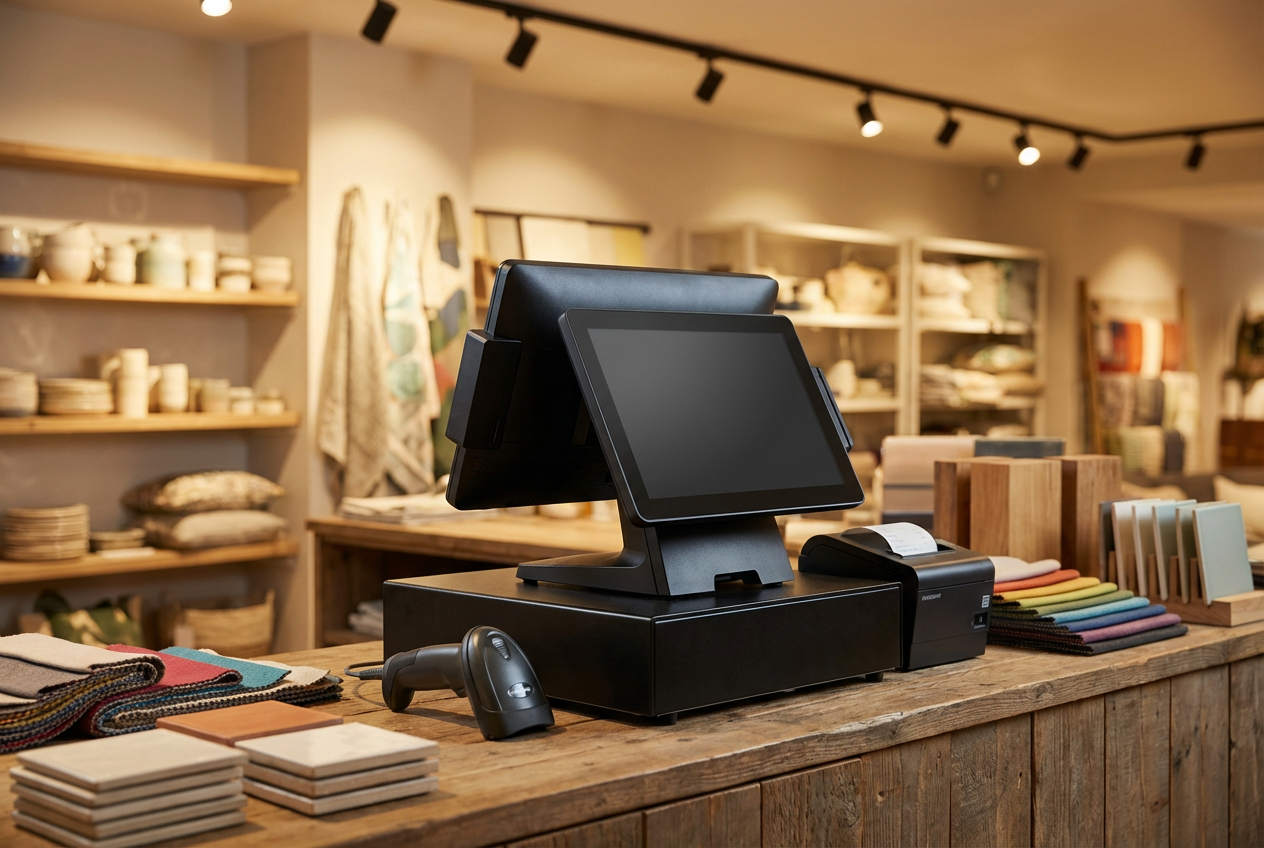Supermarkets in Indonesia are increasingly facing demands for operational efficiency, customer satisfaction, and regulatory compliance. Investing in a point-of-sale (POS) system tailored to Indonesia’s unique retail environment can offer a significant competitive advantage. However, implementing these systems comes with its own set of challenges. This guide explores the benefits and drawbacks of operating a POS for supermarket Indonesia, offering a deep dive into both the technological and business implications.
Highlight:
- A tailored POS system streamlines supermarket processes like checkout, inventory management, and reporting, boosting speed, accuracy, and customer satisfaction.
- Initial investment, ongoing expenses, and technical issues like system downtimes and connectivity disruptions remain key challenges for supermarket owners in Indonesia.
The Characteristics of Supermarkets in Indonesia
Supermarkets in Indonesia represent a bridge between traditional pasar and modern retail. They are typically medium- to large-format retail outlets that offer a wide array of consumer packaged goods, fresh produce, household items, and even electronics.
These stores are frequented by middle-class Indonesians, with purchasing behaviors influenced by convenience, brand trust, and promotional offerings.
Key characteristics include:
- High transaction volumes, especially on weekends.
- Frequent stock rotation with perishable items.
- Multi-store operations across regions.
- Customers are expecting digital receipts and loyalty rewards.
- Government regulations around VAT and digital invoicing.
This operational complexity requires a robust POS system designed for scalability and localization.
Key Benefits of Operating A POS for Supermarket Indonesia
A flexible POS system can systematize these complexities, offering operational and strategic advantages that modern supermarkets can’t afford to ignore. We’ll look into the core benefits of implementing a POS for supermarket Indonesia:
Operational Efficiency
A POS for supermarket Indonesia automates routine tasks such as checkout, pricing, discount application, and employee shift tracking. For busy supermarkets, this means faster service at the register, fewer errors, and improved queue management.
Integration with barcode scanners and receipt printers ensures swift and accurate transactions, freeing up staff to focus on customer service and shelf restocking.
Inventory Management
Managing thousands of SKUs across perishable and non-perishable items is a daily challenge for Indonesian supermarkets. POS for supermarket Indonesia provides real-time inventory tracking, automates reordering based on stock thresholds, and flags soon-to-expire items.
This decreases shrinkage, prevents stockouts, and helps confirm product availability for customer retention in competitive markets.
►►► Optimal solution set for businesses: Multi store POS, Next-gen POS, Inventory Management Software (MSI), Self Service, Automation, Backorders
Customer Experience
Modern POS solutions support loyalty programs, personalized promotions, and omnichannel integration. In Indonesia, where digital payment options and brand loyalty are rising trends, a POS system strengthens the customer journey by enabling seamless payments (e.g., QRIS, Gopay), sending digital receipts, and tracking purchasing history for tailored rewards.
Financial & Strategic Insights
POS systems generate detailed reports on sales performance, profit margins, inventory turnover, and customer behavior. These insights allow supermarket owners to make informed decisions, adjust pricing strategies, and optimize promotions around key Indonesian retail periods such as Ramadan or national holidays.
Real-time dashboards also help store managers monitor day-to-day performance without manual tracking.
Drawbacks & Challenges of Using a POS System for Supermarket Indonesia
While a POS system can revolutionize operations, it is not without its challenges, especially in Indonesia’s diverse and rapidly evolving retail landscape. Supermarket owners must carefully weigh the drawbacks before making an investment.
Initial & Ongoing Costs
One of the most significant barriers to POS adoption is the cost. The initial setup fees for hardware (terminals, barcode scanners, receipt printers), software licenses, and network infrastructure can be high, particularly for medium-sized or independent supermarkets.
Also, ongoing expenses such as software subscriptions, system upgrades, tech support, and equipment maintenance must be factored in. In rural or price-sensitive regions of Indonesia, these costs can be prohibitive.
Technical and Operational Risks
Despite their benefits, POS for supermarket Indonesia are susceptible to technical issues such as system crashes, software bugs, or internet disruptions. In areas of Indonesia where internet connectivity is unstable, a cloud-based POS might experience downtime, directly impacting sales and customer satisfaction.
Moreover, power outages, a common concern in certain parts of the country, can render the entire checkout process inoperable without offline mode support.
Human and Organizational Factors
Successfully integrating a POS system depends heavily on staff training and adaptability. If supermarket employees are unfamiliar with digital systems or resistant to change, it can lead to operational delays, errors, or underutilization of system features.
In addition, managing internal data security and ensuring that only authorized personnel have access to sensitive financial and inventory data is a growing concern in Indonesian retail environments.
Regulatory and Market-Specific Considerations in Indonesia
To successfully operate a POS for supermarket Indonesia, businesses must navigate a unique regulatory and market environment. From taxation compliance to localization, several key factors influence both implementation and daily use.
Compliance with Indonesian Tax and Retail Laws
Retailers operating in Indonesia must comply with a set of strict tax and retail regulations established by the government:
- Tax Identification (NPWP): All businesses, including supermarkets, must register for a Taxpayer Identification Number (NPWP) and file periodic tax reports.
- Value-Added Tax (VAT or PPN): Most goods sold in supermarkets are subject to a 11% VAT. POS systems must be able to calculate and include this tax automatically on receipts.
- Electronic Tax Invoices (e-Faktur): Large retailers are often required to issue electronic tax invoices, which should integrate seamlessly with the POS and accounting systems.
- Retail Operation Licensing: Businesses must obtain relevant permits, such as the Trading Business License (SIUP) and location-specific permits, depending on the region and size of operations.
- Consumer Protection Laws: These mandate transparent pricing, return policies, and clear labeling, which should be reflected in the POS interface and printed receipts.
Integration with Local Payment Gateways
Indonesia’s retail landscape is increasingly cashless, driven by digital wallet adoption and government-backed initiatives:
- QRIS (Quick Response Code Indonesian Standard): QRIS is a standardized QR code for payments implemented by Bank Indonesia. POS systems must support QRIS to ensure interoperability across multiple payment providers.
- Popular E-Wallets: Integration with local e-wallets such as GoPay, OVO, Dana, and ShopeePay is significant. Supermarkets need POS solutions that can process these payment types in real time and issue digital receipts.
- Bank Transfers and Debit Cards: While credit card use is growing, most digital transactions involve local debit cards and mobile banking apps, making compatibility with Indonesian banks a significant consideration.
Language and Localization Requirements for POS Interfaces
Localization is vital for both staff and customer usability in Indonesian supermarkets:
- Bahasa Indonesia Interface: POS systems must offer full language support in Bahasa Indonesia for ease of use by local staff and customers.
- Dual Language Receipts: Some stores prefer to issue receipts in both Bahasa Indonesia and English, especially in tourist-heavy or international business zones.
- Localized Date, Currency, and Time Format: The POS system must display Indonesian Rupiah (IDR), local date/time formats, and include options for adjusting units (e.g., kilograms, liters) to align with domestic shopping habits.
- Support for Local Accounting Standards: Integration with Indonesian accounting systems (e.g., Accurate, Jurnal) ensures smooth financial reporting and auditing.
Top 3 POS Popular for Supermarket Indonesia
We will explore the top 3 POS for supermarket Indonesia solutions that stand out for their features, local compatibility, and scalability.
ConnectPOS
ConnectPOS is a leading omnichannel POS solution designed for both online and offline retail businesses. It is widely used in Southeast Asia and supports seamless integration with Magento, Shopify, and WooCommerce, making it ideal for supermarkets operating both e-commerce and brick-and-mortar outlets.
Key Features:
- Instantly updates stock levels across your physical stores, warehouses, and online platforms, including Magento POS, Shopify POS, and WooCommerce POS, eliminating overselling and improving fulfillment accuracy.
- Manage multiple branches from a single centralized dashboard. Set custom permissions, track staff performance, and optimize operations across locations with ease.
- Accept QRIS, Gopay, OVO, ShopeePay, credit/debit cards, and more, all within one unified payment interface. Built-in multi-currency support caters to diverse shopper profiles, including tourists.
- Keep selling even during internet outages. Transactions made offline are automatically synced once connectivity is restored, confirming zero revenue loss and a smooth customer experience.
- Fully localized UI in Bahasa Indonesia for daily use, with the option to toggle between languages, making training easier and operations smoother for diverse staff.
Mid-to-large supermarkets’ POS systems are seeking advanced features, scalability, and seamless integration with ERP and e-commerce platforms.
Moka POS
Moka POS is a homegrown POS for supermarket Indonesia trusted by over 40,000 businesses, including many small and medium-sized supermarkets. It operates on Android and iOS devices and is cloud-based with offline functionality.
Key Features:
- Localized payment gateway support, including Gopay, OVO, and QRIS
- Inventory management with low-stock alerts
- Employee shift tracking and sales reporting
- Tax compliance tools for Indonesian regulations
- Integration with third-party accounting apps like Jurnal
Small to medium-sized supermarkets that prioritize local compatibility, affordability, and ease of use.
Majoo POS
Majoo POS is another Indonesia-based POS solution that has gained rapid traction among retailers and F&B businesses. Designed to serve small and medium-sized enterprises (SMEs), it provides a comprehensive retail management ecosystem at competitive pricing.
Key Features:
- Cashier dashboard and inventory control
- Built-in accounting, CRM, and business insights
- Full integration with QRIS and other Indonesian e-wallets
- Bahasa Indonesia interface
- Cloud-based with offline transaction backup
Budget-conscious supermarkets require all-in-one POS functionality with built-in analytics and customer management capabilities.
FAQs: POS for Supermarket Indonesia
- Is a POS system mandatory for supermarkets in Indonesia?
While not legally mandated for all, larger retailers and supermarket chains are expected to adopt POS systems to comply with tax regulations, electronic invoicing, and audit readiness.
- What’s the average cost of a POS system in Indonesia?
For a small to medium supermarket, basic POS packages start from IDR 1.5 million/month ($95 USD), while enterprise systems can cost over IDR 30 million ($1,900 USD) for setup plus monthly licensing.
- Can POS systems handle Bahasa Indonesia and local currencies?
Yes. Leading POS providers, such as ConnectPOS, Moka, and Majoo, support Bahasa Indonesia, IDR, local tax structures, and local payment integrations, ensuring full compatibility with Indonesian operations.
Conclusion
Operating a POS for supermarket Indonesia offers significant advantages, from streamlining inventory to enhancing customer experience. However, navigating costs, regulations, and localization is key. Among available options, ConnectPOS stands out with its robust features, seamless integration, and full localization. Ready to elevate your supermarket? Contact us today to book a demo.
►►► Optimal solution set for businesses: Shopify POS, Magento POS, BigCommerce POS, WooCommerce POS, NetSuite POS, E-Commerce POS



